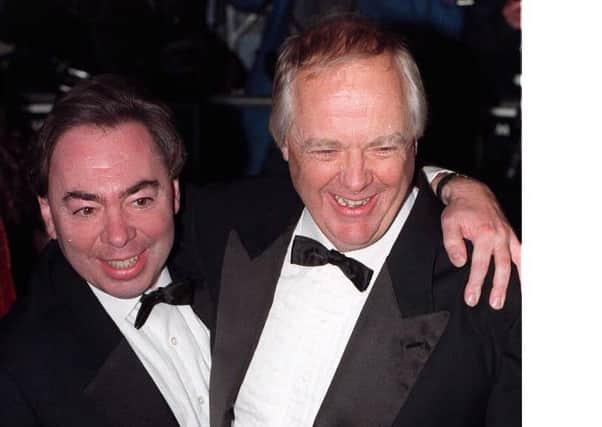The culture clash of 50 years ago as ‘sacrilegious’ Lloyd Webber musical is unleashed


From London Weekend’s studio in Wembley, David Frost presided over ITV’s first night in colour by mounting a celebration of what popular entertainment had been – and what it was about to become.
The handlebar-moustached Jimmy Edwards, “Two Ton” Tessie O’Shea and Richard “Stinker” Murdoch were among those waxing nostalgic about the golden age of steam radio in the 1950s.
Advertisement
Hide AdAdvertisement
Hide AdThere was even an appearance by Sheffield comedian Stainless Stephen, whose elegant, tongue-twisting monologues dated from the 1930s.


But it was a young singer called Murray Head whose performance stood as a signpost for the nation’s change of direction.
“Let’s begin with a rather extraordinary song by two young men – a song that a lot of people think is going to have a lot of impact,” Frost said, by way of introducing the title track from a new musical called Jesus Christ Superstar.
Today it is a staple of primary school concerts but 50 years ago its creators, Andrew Lloyd Webber and Tim Rice, had to sneak it into the market on an LP because no producer would countenance the idea of a theatrical entertainment based on the Bible.
Advertisement
Hide AdAdvertisement
Hide AdThe ITV exposure generated sales of 3,500 in one day alone, with Martin Sullivan, the Dean of St Paul’s, writing on the sleeve: “There are some people who may be shocked by this record. I ask them to listen to it and think again.”
But despite Sullivan allowing it to be performed at St Paul’s, not everyone saw it in the same light and the authors were dogged by accusations of blasphemy for having depicted the crucifixion but not the resurrection.
“We are basically trying to tell the story of Christ as a man,” Rice said at the time. “I think he increases in stature by looking at him... simply the right man at the right time at the right place.”
The 50th anniversary of the grandfather of rock musicals tells a story of a world caught between traditionalism and the 1960s culture that had threatened to sweep it away.
Advertisement
Hide AdAdvertisement
Hide AdRupert Till, a professor of music at Huddersfield University, recalled that up to that point an unwritten rule had separated popular and religious music.
“Nowadays we wouldn’t think much at all about the place of guitars in churches but back then those things were very separate. Pop and rock music was considered oppositional and even sacrilegious,” he said.
“But attitudes were changing. It was the point at which Christianity began to assume a different place in society. Fewer people went to church or got married.”
The controversy surrounding the musical, he added, helped to make it the phenomenon it became, turning Lloyd Webber especially into a one-man industry.
Advertisement
Hide AdAdvertisement
Hide Ad“You can’t beat that kind of publicity,” he said. “The more churches said it was outrageous, the easier it was to sell records and fill seats.”
Apart from Lionel Bart’s Oliver!, there had not been a successful British musical since the days of Noel Coward.
But along with contemporary productions like Godspell and Hair, Rice and Lloyd Webber changed everything. The new music had taken over.
“The mass adoption of popular culture gave it a different role in society,” Prof Till said.
Advertisement
Hide AdAdvertisement
Hide Ad“The rock music that Jesus Christ Superstar represented was different from anything before and although parents and grandparents will listen to it today with their children, it was not the case then.”